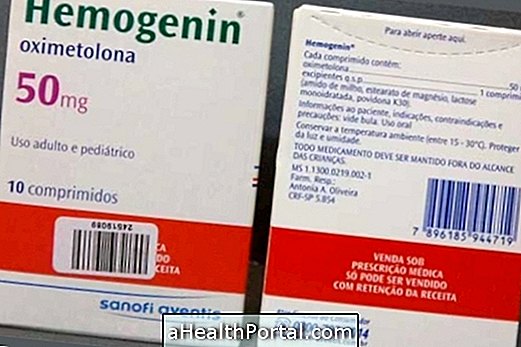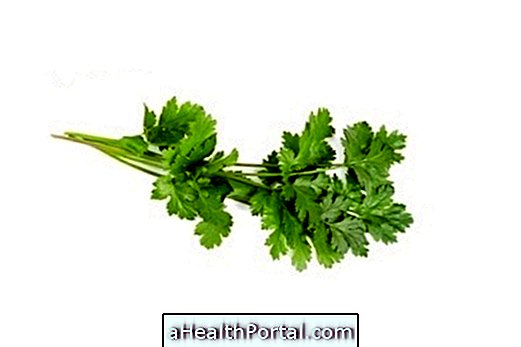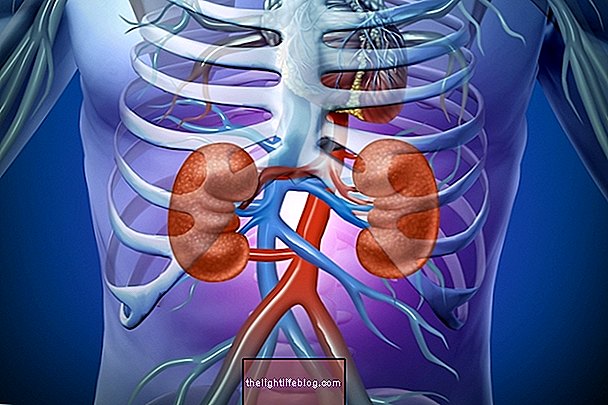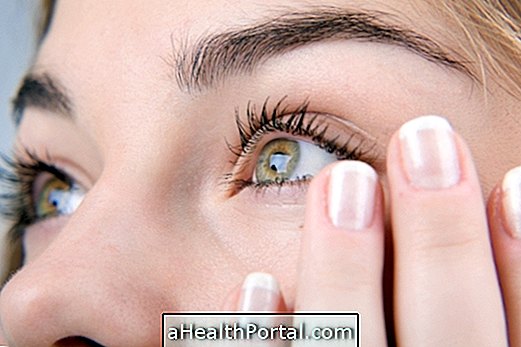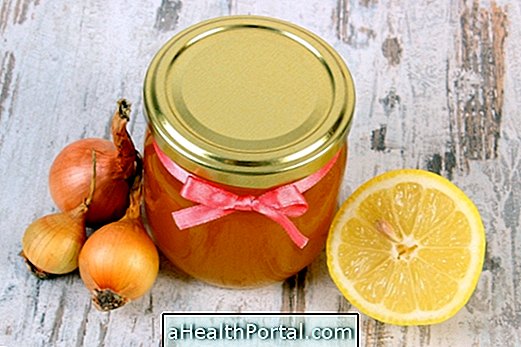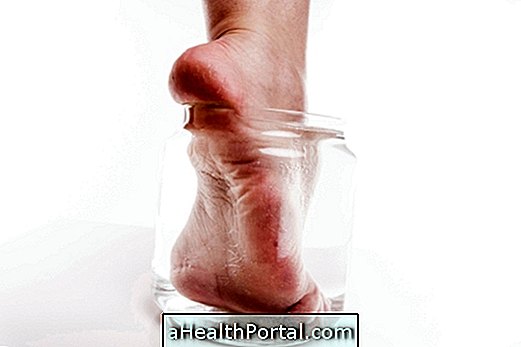Vaccination against COVID-19 is a very controversial topic, especially since vaccines were developed in record time to try to combat the worldwide pandemic caused by the new coronavirus.
For this reason, many doubts and myths have arisen about the vaccine, especially related to its safety and effectiveness. The following is a list of the most frequent doubts, explained and clarified based on scientific evidence.
/16-dvidas-sobre-a-vacina-do-coronavrus-(covid-19).jpg)
1. Is the vaccine safe?
The COVID-19 vaccine has been subjected to several tests to ensure its effectiveness, safety and quality. Thus, it is considered a completely safe vaccine.
2. Is the vaccine mandatory?
The vaccine against the new coronavirus is provided free of charge and is voluntary, that is, it should only be done by those who wish to have the vaccination, and it is not mandatory. Still, health officials recommend vaccination, as a means of individual protection and to help control the pandemic.
3. Who can get the vaccine?
The vaccine against COVID-19 is indicated for all people, however, it is advisable to consult the doctor in some specific situations, such as having a previous history of allergies, mainly to some type of vaccination, or having a weakening of the immune system, as happens in cancer patients or undergoing treatments that hinder the functioning of the immune system.
Since access to vaccination is limited, each country has implemented a vaccination plan that divides the population into priority groups, in order to provide the first vaccines for those most at risk of serious infection. In the case of Brazil, the vaccination process takes place in 3 distinct phases:
- 1st phase: health workers, people over 75, indigenous people and people over 60 who live in institutions;
- 2nd phase: people over 60 years old;
- 3rd phase: people with other diseases that increase the risk of serious infection by COVID-19, such as diabetes, hypertension, kidney disease, among others.
To find out what your risk of having a serious COVID-19 infection is, please fill out this form:
- 1
- 2
- 3
- 4
- 5
- 6
- 7
- 8
- 9
- 10
Start the test
/16-dvidas-sobre-a-vacina-do-coronavrus-(covid-19)_2.jpg)
/16-dvidas-sobre-a-vacina-do-coronavrus-(covid-19)_3.jpeg')
Sex:
- Male
- Feminine
/16-dvidas-sobre-a-vacina-do-coronavrus-(covid-19)_4.jpeg')
Age:
Next
/16-dvidas-sobre-a-vacina-do-coronavrus-(covid-19)_5.jpg)
Weight:
Next
/16-dvidas-sobre-a-vacina-do-coronavrus-(covid-19)_6.jpg)
Height:
In meters.
Next/16-dvidas-sobre-a-vacina-do-coronavrus-(covid-19)_7.jpg)
Do you have any chronic illness?
- No
- Diabetes
- Hypertension
- Cancer
- Heart disease
- Other
/16-dvidas-sobre-a-vacina-do-coronavrus-(covid-19)_8.jpg)
Do you have a disease that affects the immune system?
- No
- Lupus
- Multiple sclerosis
- Sickle Cell Anemia
- HIV / AIDS
- Other
/16-dvidas-sobre-a-vacina-do-coronavrus-(covid-19)_9.jpg)
Do you have Down syndrome?
- Yea
- No
Are you a smoker?
- Yea
- No
/16-dvidas-sobre-a-vacina-do-coronavrus-(covid-19)_10.jpg)
Did you have a transplant?
- Yea
- No
/16-dvidas-sobre-a-vacina-do-coronavrus-(covid-19)_11.jpg)
Do you use prescription drugs?
- No
- Corticosteroids, such as Prednisolone
- Immunosuppressants, such as Cyclosporine
- Other
4. How long does the vaccine take to take effect?
The vaccine against COVID-19 takes a few weeks to produce the expected effect, since the body needs time to produce the antibodies that will ensure immunity against the virus. Thus, people who have contracted the virus in the weeks prior to vaccination, or shortly after receiving the vaccine, may develop symptoms, as the body does not yet have the necessary antibodies.
It is also important to remember that, in the case of vaccines that need to be carried out in 2 different doses, the highest rate of protection only happens 2 to 3 weeks after the 2nd dose.
5. How long does the immunity conferred by the vaccine last?
The duration of the immunity conferred by the vaccine is not yet known, however, the first studies suggest that protection is maintained for at least 4 months, gradually decreasing after that period. Still, more studies are needed.
6. Can I get sick from getting the vaccine?
None of the approved vaccines against COVID-19 contain the live virus in its composition. For this reason, the vaccine is not capable of causing a COVID-19 infection. See how the main vaccines against COVID-19 work.
7. Does the vaccine change DNA?
The COVID-19 vaccine does not cause changes in DNA. Although some vaccines contain pieces of the virus's mRNA, these pieces do not alter the DNA of human cells at all, only stimulating the immune system to produce antibodies capable of fighting the virus.
8. Who has had COVID-19, need to be vaccinated?
Vaccination against COVID-19 is indicated even for those who have already been infected, since studies indicate that it is possible to develop the infection again.
People with an active infection should not be vaccinated, being advised to take the vaccine more than 30 days after the initial diagnosis, and if they are part of the group being vaccinated, according to the vaccination plan.
9. Is it necessary to repeat the vaccination periodically?
It is not known for how long the vaccine from COVID-19 confers immunity, so it is not possible to say whether the vaccination will need to be done periodically. However, if it is found that the protection is short-lived, it is possible that it is necessary to carry out periodic vaccination, especially of the groups at greatest risk.
/16-dvidas-sobre-a-vacina-do-coronavrus-(covid-19)_12.jpg)
10. Does taking more than one type of vaccine increase immunity?
There are still no studies evaluating immunity after the administration of two types of vaccine against COVID-19, for this reason, the indication of health authorities is that vaccination should be carried out with only one type, in the first and second doses.
11. Is it possible to transmit the virus after being vaccinated?
The vaccine only protects against the development of the infection, which means that a vaccinated person, while at low risk of developing symptoms, can still transmit the virus to others, especially if they are not vaccinated.
12. Should you continue to wear a mask after vaccination?
Since vaccination does not completely prevent the transmission of the virus, it is recommended that, after vaccination, individual protection measures be maintained, such as wearing a mask, frequent hand washing and social distance. These measures must be maintained until a large percentage of the population is vaccinated or until the speed of spread of the virus is very low.
Check out all the measures to protect yourself and others from COVID-19.
13. What adverse reactions can arise?
Like any other type of vaccine, the COVID-19 vaccine can also cause the appearance of some side effects, especially pain at the injection site, tiredness, fever and headache. However, these symptoms are usually mild and tend to disappear within a few days. See what are the most common adverse reactions of vaccines and what to do to treat each one.
/16-dvidas-sobre-a-vacina-do-coronavrus-(covid-19)_13.jpg)
14. Is it true that the vaccine can cause infertility?
There is no scientific evidence to indicate that the vaccine against the new coronavirus may cause infertility.
15. Who should not vaccinate COVID-19?
There is no definitive contraindication against the vaccination of COVID-19. However, pregnant women, children or adolescents under the age of 16 and people with some type of serious illness that can affect the immune system, such as cancer, should always discuss the possibility of vaccination with a doctor.
16. Can pregnant women get the vaccine?
There are no studies conducted with pregnant women that can ensure the safety of the vaccine against COVID-19. For this reason, it is very important that the issue of vaccination is discussed with the obstetrician who monitors the pregnancy, in order to understand the potential risks and benefits.
Test your knowledge
Now that you've cleared up some of the most common questions about vaccination for COVID-19, take our online test to find out what you know about vaccination:
- 1
- 2
- 3
- 4
- 5
- 6
COVID-19 vaccine: test your knowledge!
Start the test
/16-dvidas-sobre-a-vacina-do-coronavrus-(covid-19)_14.jpg)
/16-dvidas-sobre-a-vacina-do-coronavrus-(covid-19)_15.jpg)
The vaccine was developed very fast, so it cannot be safe.
- Real. The vaccine was developed very fast and not all side effects are known yet.
- False. The vaccine was developed quickly but has undergone several rigorous tests, which guarantee its safety.
/16-dvidas-sobre-a-vacina-do-coronavrus-(covid-19)_16.jpg)
The vaccine is at high risk of causing serious complications, such as autism or infertility.
- Real. There are several reports of people who developed serious complications after taking the vaccine.
- False. In most cases, the vaccine causes only mild side effects, such as pain at the injection site, fever, tiredness and muscle pain, which disappear in a few days.
/16-dvidas-sobre-a-vacina-do-coronavrus-(covid-19)_17.jpg)
Anyone who has had COVID-19 also needs to get the vaccine.
- Real. Vaccination against COVID-19 must be carried out by all people, even those who have already had the infection.
- False. Anyone who has had COVID-19 is immune to the virus and does not need to get the vaccine.
/16-dvidas-sobre-a-vacina-do-coronavrus-(covid-19)_18.jpg)
The annual common flu vaccine does not protect against COVID-19.
- Real. The annual flu vaccine only protects against the influenza-like virus.
- False. The flu vaccine protects against several types of viruses, including the new coronavirus.
/16-dvidas-sobre-a-vacina-do-coronavrus-(covid-19)_19.jpg)
Those who get the vaccine no longer need to take other precautions, such as washing their hands or wearing a mask.
- Real. From the moment the vaccination is carried out, there is no risk of catching the disease, nor of transmitting it, without the need for any additional care.
- False. The protection afforded by the vaccine takes a few days to appear after the last dose. In addition, maintaining care helps to avoid transmitting the virus to others who have not yet been vaccinated.
/16-dvidas-sobre-a-vacina-do-coronavrus-(covid-19)_20.jpg)
The COVID-19 vaccine can cause infection after it is administered.
- Real. Some vaccines against COVID-19 contain small fragments of the virus that can end up causing the infection, especially in people with weakened immune systems.
- False. Even vaccines that use fragments of the virus, use an inactivated form that is not able to cause any type of infection in the body.
Was this information helpful?
Yes No
Your opinion is important! Write here how we can improve our text:
Any questions? Click here to be answered.
Email in which you want to receive a reply:
Check the confirmation email we sent you.
Your name:
Reason for visit:
--- Choose your reason --- DiseaseLive betterHelp another personGain knowledge
Are you a health professional?
NoMedicalPharmaceuticalsNurseNutritionistBiomedicalPhysiotherapistBeauticianOther
Bibliography
- CDC. Myths and Facts about COVID-19 Vaccines. Available in: . Accessed on 17 Feb 2021
- CDC. Frequently Asked Questions about COVID-19 Vaccination. Available in: . Accessed on 17 Feb 2021
- THE NEW ENGLAND JOURNAL OF MEDICINE. Covid-19 Vaccine - Frequently Asked Questions. Available in: . Accessed on 17 Feb 2021
- DGS. Vaccination | Common questions. Available in: . Accessed on 17 Feb 2021
- GOVERNMENT OF SANTA CATARINA. Questions and answers: answer your questions about vaccination against Covid-19 in SC. Available in: . Accessed on 17 Feb 2021
- LOMA LINDA UNIVERSITY. Does the COVID-19 vaccination cause infertility?. Available in: . Accessed on 17 Feb 2021
Referring to: "Risk of serious COVID-19 infection":
- CDC. People with Certain Medical Conditions. Link: //www.cdc.gov/coronavirus/2019-ncov/need-extra-precautions/people-with-medical-conditions.html. Accessed on 19 Jan 2021
/vacina-covid-19-como-funciona-eficcia-e-efeitos-colaterais.jpg)
/como--feito-o-tratamento-para-coronavrus-(covid-19).jpg)
/16-dvidas-sobre-a-vacina-do-coronavrus-(covid-19).jpg)






